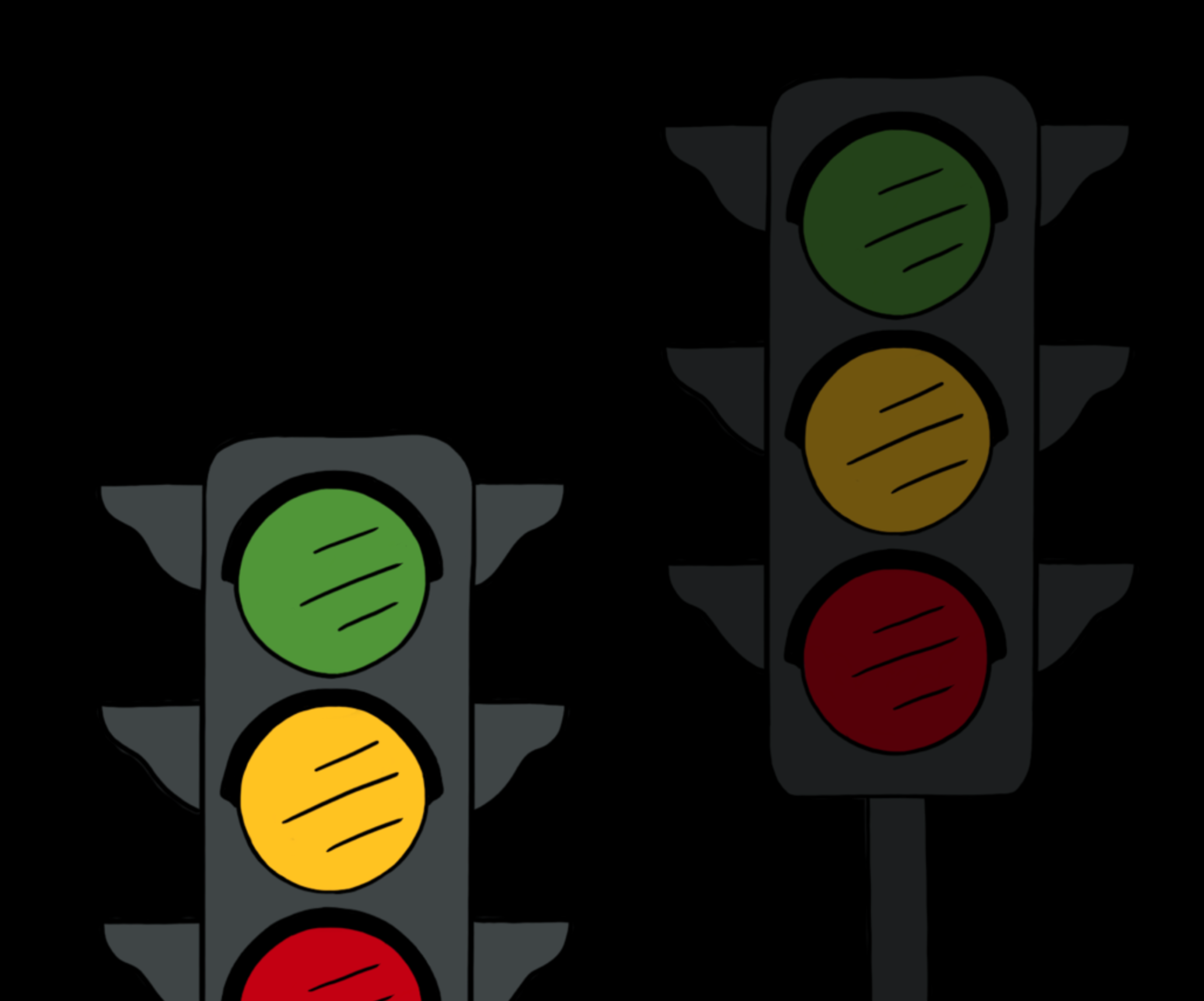
Kindness to self
This lesson will talk about kindness to self. Stick with me here.
I know it might sound like a really unappealing or trivial topic, but in my opinion this is the single most important thing that I can write about. If the only thing that people leave Stabilise with is learning to be just that little bit kinder to themselves, like truly kinder, I’d consider this project a huge success.
And while it might sound like a really fluffy topic, hang in there with me — coz there’s actually a lot of cool science here.
Why kindness to self
So far in this course we’ve mostly talked about the nervous system and our stress response, and how learning to regulate our nervous system can help to improve our mental health. And this ‘Cope’ section is filled with exercises full of tools and strategies that are designed to help us do this.
But before we go there, I want to make it clear that reducing stress isn’t always about using tools and strategies. It’s not about fancy exercises, or stimulating the vagus nerve, or just breathing a certain way. Yes these things help, but they’re ultimately just things that we do as a way to introduce kindness and care to ourselves, and our nervous system.
And sometimes the reason that these things can feel hard for us to do, is because it maybe feels really hard to actually be kind to yourself. And that might be what needs to be worked on.
While the idea of being kind to yourself can seem so simple for some people, I also notice that for so many of us in today’s society, more often than not our running commentary in our head is downright mean — but it’s just so normalised that we don’t question it. And bringing awareness to this topic of kindness can help us to shift these patterns of thinking that we might be finding ourselves in each day.
What is kindness to self
So it might be really obvious, but kindness to self is the act of treating yourself with care and compassion. It’s speaking to yourself with kindness — offering yourself encouragement, forgiveness, support, acceptance, patience, and grace, even when there is challenge, failure, discomfort, or self-doubt. As Holly Ringland says, “it’s about staying with yourself instead of abandoning yourself in discomfort”.
Kindness to self allows you to have a relationship with yourself that is nourishing and supportive, rather than critical or discouraging. There’s so much research out there showing that kindness and self-compassion improves mental health, motivation, resilience, and ultimately allows us to make mistakes, learn, and grow.

The science: animal studies
But it doesn’t end there. There have been some really cool studies over the past 50 years showing just how profound an impact kindness has on health. I’m not a scientist or a doctor, so I’ve summarised two main studies that I think really demonstrate this, and if you want to learn more you can check out the Resources section below.
Rabbit study
As it often happens with a lot of scientific breakthroughs, this one came about by accident. Researches were studying the relationship between a high cholesterol diet and heart disease, and were feeding groups of rabbits the same high-fat diet, and then measuring the fatty deposits on the inside of the rabbits’ arteries. The results were consistent, with all the groups of rabbits having high levels of fatty deposits due to this diet — except for one group of rabbits, who happened to be handled by a research assistant who was particularly kind and caring. She would talk to them with kindness and affection, and would cuddle and pet them — and their arteries were 60% less affected by the unhealthy diet than all the other groups.
So the scientists replicated this study again, this time specifically measuring for the affect that kindness has on the rabbits’ health across different control groups, with the same results. These rabbit studies were one of the first that started to show how it’s not just genetics and diet that can affect our health — so can kindness, compassion and care. We have a social dimension to health and, in my opinion, kindness is at the centre of this.
Rat study
Another group of researchers wanted to test the age-old question of ‘nature versus nurture’ — genetics versus kindness. And this time they used a group of rat mums and their babies to do it. The researches noticed how some rat mums would lick and groom their offspring a lot while raising them, while other rat mums didn’t. As they studied them, they found that the more nurturing ‘high licker’ rat mothers resulted in extremely relaxed and calm pups, whereas the more emotionally distant ‘low licker’ rat mothers raised pups that were more anxious, and even hostile.
The scientists took the study even further, by swapping mothers and babies to see whether the mother’s nurturing behaviour would have an effect on the pups that were genetically born from a more distant, anxious rat. The results once again showed that a nurturing rat mum allowed a previously anxious rat baby to become relaxed and docile, and would even grow up to become a high-licker, nurturing mum herself.
This study demonstrated the power of the social environment to alter our DNA through epigenetics — essentially showing how genes are not fixed but instead can be turned on and off based on life events. Exposure to love, care, and kindness can trigger biochemical reactions that affect a rat’s nature and change how it interacts with the world around it. And these findings aren’t limited to rabbits and rats — this happens for us too, and its importance shouldn’t be minimised.

The science: attachment theory
So while these studies may have started with rabbits and rats, in the decades since we’ve had countless scientific studies proving the importance of nurturing and kindness for humans. And this is something I think we all already know intuitively to be true, but it’s pretty cool to have the science that actually tells us how and why.
As touched on in Module 2, humans are social beings. Our biology and our social needs are closely interwoven — in order to feel safe, both as children and adults, we need to know that our loved ones are accessible to us, and that we’ll be accepted, comforted, and protected by them.
Attachment theory
In the therapy world, we explain this concept using the science of attachment theory, which basically explains how the early relationships in the first two years of our life affects our ability to feel either secure or insecure in the world around us. Because as infants we don’t have access to the self-regulating parts of our brains, much like the pups in the rat study, we rely on the nurturing of our primary caregivers to help us feel safe and secure. When a baby is distressed or in pain, the kind and attentive presence of a caregiver will trigger an endorphin release in the infant’s brain that helps soothe them. How much comfort and soothing we receive from a caregiver during these early stages of life will directly affect how our nervous system develops, and how easily we can tolerate distress and soothe ourselves as we grow into adults.
The science shows again and again that it’s not personality, temperament, or genetics that best predicts a person’s behaviours or well-being as they move into adulthood, but instead it’s the level of security and care they felt in their primary relationships growing up. Again it always comes back to kindness.
And if you did experience chronic stress or trauma growing up, or didn’t have access to this kind of secure attachment from a caregiver, what’s comforting is that we now know that this process of epigenetics means that we can start to find healing at any stage of life. The experience of secure and caring relationships, whether thats’ from a therapist or a safe other in your life, can provide corrective experiences that help us heal, no matter what age we are.
The ‘self’ part in kindness to self
So this need for secure relationships in life never really goes away — infants and children need to experience care and compassion to grow and thrive, but so do adults. We feel safest when we know our partner or loved ones will treat us with kindness, even when there is challenge, failure, discomfort or doubt.
And yes, it can be beautiful and important and powerful to experience this kindness from another person. But I want to acknowledge that sometimes we don’t have choice here. Sometimes we may not have the means or access to see a therapist. Sometimes we may not have that safe person to turn to that can offer us kindness and security when we need it. Or even if we do have those people in our lives, the reality of being an adult is that no one person or relationship can be this ever-presence of kindness and soothing that meets all of our needs 100% of the time — the truth is that’s not realistic or possible for any relationship in life.
What we always have however, as cliché as it might sound, is ourself. The reason that those rabbits, rats, and humans who were raised by nurturing caregivers grow up to become relaxed and secure adults is because the caregiver is modelling kindness to them. By providing acceptance, compassion, comfort and protection, a caregiver is directly affecting the way a person’s brain develops. Their nurturing behaviour becomes internalised in the infant, so that we learn how to give ourselves the same care and compassion when challenge or distress arises. We learn to be there for ourselves in the ways that they were there for us. These are the building blocks to self-regulation.
And even if we didn't receive this modelling when we needed it as infants — even if we still haven't received it now — it can be learnt. “I’ve got you” can become something we learn to say to ourselves, too.
How to practice kindness to self
The how in how we learn to do this, really starts with practice. Many of the exercises in the Cope course are geared towards helping us learn to do just this for ourselves and our nervous system. Each of the exercises introduce ways to speak to yourself and respond to your discomfort with kindness and acceptance, and the more this is practiced the more automatic this way of speaking to yourself will become.
But beyond the exercises here in Stabilise, we can also start to practice this by learning to introduce small acts of self-care throughout the day, and asking yourself the question “how can I be a little kinder to myself right now” — and really listening for the answer. I can’t give a concrete answer for how to be kind to yourself, because it will always look different for everyone on any given day.
Some examples could include:
- Wrapping yourself up in your favourite comfy blanket or taking a warm bath at the end of a long day to give yourself extra relaxation and comfort. Or, taking the extra time to exercise at the end of a long day, even if you're tired, because you know your body is needing that right now.
- Making your bed with that little bit of extra intention and love in the morning before you start your day. Or, leaving your bed unmade and using the extra time to mindfully sip on some tea with your favourite mug in the morning.
- Saying no to that social event you feel obligated to go to, without guilt, because you know what you really need that week is a night in to rest. Or, saying yes to that social event you really want to go to but don’t think you have the time for, because what you really need right now is to recharge your social battery!
- Skipping that easy fast food meal and feeding yourself something nourishing instead because that’s what your body really needs right now. Or, letting yourself eat the treat food because that’s what’s most kind and loving for you in that moment.
- Speaking to yourself with kindness when you can't do something and giving yourself permission to rest, let it go, or try it another day. Or, speaking to yourself with kindness when you can't do something and firmly encouraging yourself to push through the challenge, try again, or keep going.
These are some very basic examples, but you can see the polarities here — there is no “right” thing. It’s about building this self-kindness muscle, learning to ask yourself what you need, and truly listening for the answer inside that feels the most right in that particular moment. If you're struggling to know what feels right, remember back to the signs and signals of the green zone — it might feel like a sense of relief, a sense of warmth, a sense of release, or maybe even a sense of courage. And remember it takes practice.
Questions you can ask to check in with yourself:
- “How can I be a little kinder to myself right now?”
- “What is the most loving thing I can say to myself right now?”
- “How can I show myself a little extra grace in this moment?”
- “What is the kindest thing I can do for my nervous system right now?”
- “What can I do, right now, to get myself just that little bit closer to the green zone?”
- “What can I do to regulate myself right now, just a little?”
- “What is the most supportive thing I can do for myself right now?”
- “How would I treat a close friend, a pet, or my child self, if they were in this situation?”
- “What is the most generous assumption I can make as to why I’m feeling/behaving/thinking like this right now?”

When you feel resistance
I want to acknowledge that for a lot of us, the idea of being kind of loving to yourself can bring up a lot of resistance — it might make you squirm or feel uncomfortable. And if that’s the case, maybe that’s the place the start. Asking yourself “why am I feeling resistance to the idea of being kind to myself right now?” — noticing where that’s coming from in you, and offering that part of yourself kindness first.
Sometimes the idea of kindness can bring up this resistance in us that says “I’m not deserving of this”. Maybe we received the message somewhere along the way that we don’t deserve to be treated well, not even by ourself. Maybe we believe that our kindness is conditional — that we are only worthy of receiving it if we are in a good mood, if we don’t have needs, if we don’t have problems. And it is this part of us that might need our understanding and compassion first. Saying to yourself “oh, there’s this part of me right now that feels the need to prevent me from being kind to myself, coz it thinks that’s how it can protect me” — and offering this part of us gratitude, patience, and maybe some curiosity.
For some of us sometimes this notion of kindness just seems too fluffy or obvious, like we’re coddling ourselves or letting us off the hook somehow. I want to emphasise to you that being kind to yourself does not mean that we don’t have to take accountability for our actions, that we don’t have to strive to be better. It’s simply about being kind to ourselves during that challenge. It might mean owning failure, owning mistakes, reflecting on our needs, advocating for our boundaries, looking at our lives with honesty and compassion — and not abandoning our sense of self-worth in the process.
For some of us this is easy, and it doesn’t need to be worked at. And for some of us this takes practice to get used to. Step one — just be kind to wherever you are at right now.

Resources
If you're wanting to read more about kindness, check out these resources:
What's next
The rest of this introduction section will continue to provide resources on how we can improve our mental health with other lifestyle factors.
We’ll talk about sleep, nutrition, exercise, medication, and other forms of healthcare. This is all optional of course, but the resources are there if you want them.

